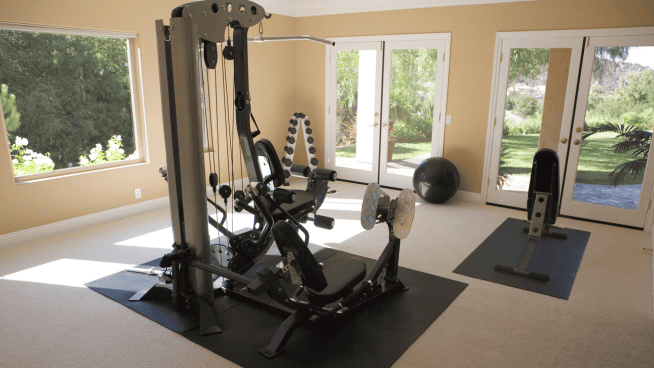Sports Psychology Training: The Power of Postive Thoughts
Self-talk. That “voice” inside your head. Most athletes are not aware of how much their thoughts, negative or positive, influence their performance. Negative thoughts cause a downward spiral of increased stress and anxiety, eventually resulting in poor performance. Positive thoughts do the opposite. Using sport psychology skills can increase positive thinking and can help an athlete regain focus after mistakes, build confidence and keep their head in the game. (It cost Adam Scott the British Open)
The Powerful Paper Clip
This simple exercise is good for increasing awareness and frequency of self-talk. During a practice, carry around a number of paper clips in your left pocket and transfer one to your right pocket each time you have a negative thought. You will probably be amazed at the number of paper clips you have transferred and how those negative thoughts affected your performance.
Daily Self-Talk Log
This technique is particularly useful in helping to reveal situations that are problematic for performance. Once you find situations that cause negative self-talk, you can counter them with specific self-talk statements from sports psychology training to get you back on track thinking positive thoughts.
The log should include:
- The situation that provoked the negative self-talk (e.g., striking out with the bases loaded, missing a clutch free throw)
- The specific self-talk statements (e.g., “I can’t believe I did that,” “I never come through in this situation,” “I messed up.”)
- The emotional and performance consequences (e.g., anger, frustration, fear; missed shots, blown defensive assignments) of the self-talk statements.
Positive Affirmations
An affirmation is a strong, positive self-statement, spoken in the present tense, about a goal that has the potential to be realized. It’s helpful if you use positive statements on a daily basis during practice to train your mind to think more positively. You can write positive affirmations on athletic tape and affix them to your training bag, equipment, locker, or uniform. Or you can write them on post-it notes or index cards and place them on your desk or nightstand so they are always visible.
Examples include: “I am ready for this competition,” “I am strong,” and “I am ready to do this.”
Thought Stopping
Use a visual, verbal or physical cue to stop unwanted thoughts. For example, if you’re running a 10K race and you think, “I’ll never make it. I’m too tired,” just picture a stop sign, say the word “stop,” and snap your fingers to signal the end of the negative thought. The goal is to stop negative thoughts before they cause negative feelings and behaviors.
Changing Negative Thoughts to Positive Thoughts
Going one step further, you can prepare for difficult situations by practicing replacing negative thoughts with positive ones. For example, when you think, “I’ll never make it. I’m too tired,” you can replace it with a statements such as “I have trained hard for this. My pace is right on track.”
If you use this type of sport psychology training in your daily routine, you will eventually see the connection between positive thoughts and successful performance.
RECOMMENDED FOR YOU
MOST POPULAR
Sports Psychology Training: The Power of Postive Thoughts
Self-talk. That “voice” inside your head. Most athletes are not aware of how much their thoughts, negative or positive, influence their performance. Negative thoughts cause a downward spiral of increased stress and anxiety, eventually resulting in poor performance. Positive thoughts do the opposite. Using sport psychology skills can increase positive thinking and can help an athlete regain focus after mistakes, build confidence and keep their head in the game. (It cost Adam Scott the British Open)
The Powerful Paper Clip
This simple exercise is good for increasing awareness and frequency of self-talk. During a practice, carry around a number of paper clips in your left pocket and transfer one to your right pocket each time you have a negative thought. You will probably be amazed at the number of paper clips you have transferred and how those negative thoughts affected your performance.
Daily Self-Talk Log
This technique is particularly useful in helping to reveal situations that are problematic for performance. Once you find situations that cause negative self-talk, you can counter them with specific self-talk statements from sports psychology training to get you back on track thinking positive thoughts.
The log should include:
- The situation that provoked the negative self-talk (e.g., striking out with the bases loaded, missing a clutch free throw)
- The specific self-talk statements (e.g., “I can’t believe I did that,” “I never come through in this situation,” “I messed up.”)
- The emotional and performance consequences (e.g., anger, frustration, fear; missed shots, blown defensive assignments) of the self-talk statements.
Positive Affirmations
An affirmation is a strong, positive self-statement, spoken in the present tense, about a goal that has the potential to be realized. It’s helpful if you use positive statements on a daily basis during practice to train your mind to think more positively. You can write positive affirmations on athletic tape and affix them to your training bag, equipment, locker, or uniform. Or you can write them on post-it notes or index cards and place them on your desk or nightstand so they are always visible.
Examples include: “I am ready for this competition,” “I am strong,” and “I am ready to do this.”
Thought Stopping
Use a visual, verbal or physical cue to stop unwanted thoughts. For example, if you’re running a 10K race and you think, “I’ll never make it. I’m too tired,” just picture a stop sign, say the word “stop,” and snap your fingers to signal the end of the negative thought. The goal is to stop negative thoughts before they cause negative feelings and behaviors.
Changing Negative Thoughts to Positive Thoughts
Going one step further, you can prepare for difficult situations by practicing replacing negative thoughts with positive ones. For example, when you think, “I’ll never make it. I’m too tired,” you can replace it with a statements such as “I have trained hard for this. My pace is right on track.”
If you use this type of sport psychology training in your daily routine, you will eventually see the connection between positive thoughts and successful performance.












